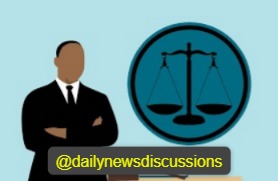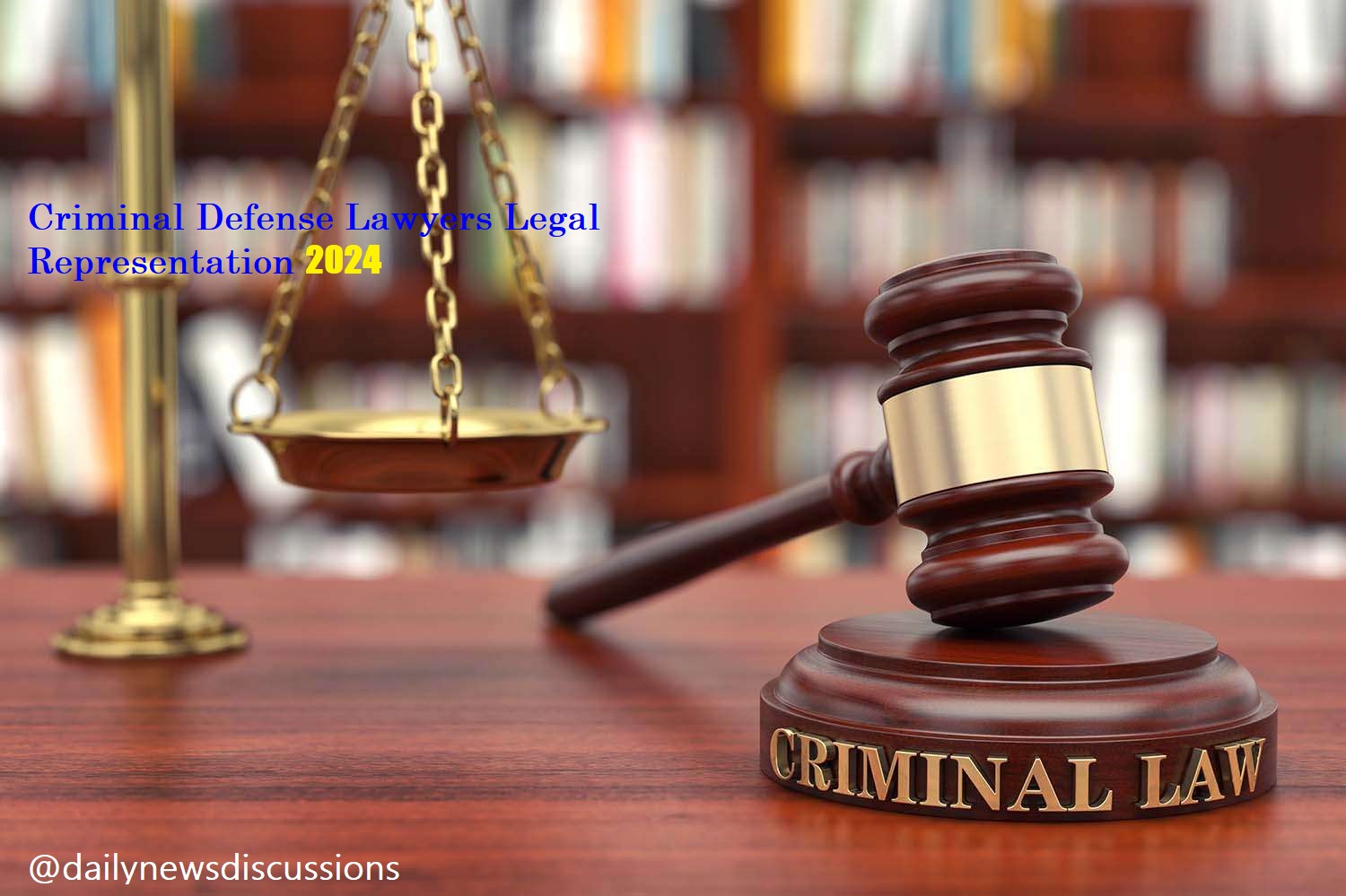Your Essential Guide to Criminal Defense Lawyers
Let’s face it, criminal charges are scary. The legal system feels like a labyrinth, and navigating it alone is a recipe for disaster. That’s where criminal defense lawyers step in – your personal justice warriors battling for your rights. But how do you know you need one, and what exactly do they do?

Facing the Charges: When to Call in the Cavalry
Not every scrape with the law requires a lawyer. Maybe you got a speeding ticket – a fix-it ticket and a driving course might be all you need. But for serious charges, the stakes are high. Here’s when a criminal defense lawyer becomes your best friend:
- Arrested? Avoid speaking with the police without legal representation. They represent the state, not you. Your lawyer can advise you on your rights and protect you from saying anything incriminating.
- Facing Felony Charges? Felonies carry serious consequences, including prison time and hefty fines. Don’t risk going it alone.
- Confused by the Charges? Legal jargon can be a nightmare. A lawyer can translate the legalese and explain what you’re facing.
- The Evidence Seems Stacked Against You? A skilled lawyer can investigate the evidence, challenge its validity, and uncover weaknesses in the prosecution’s case.
Case Study: David vs. Goliath (Goes to Court)
Imagine David, a college student wrongly accused of shoplifting. Security footage is blurry, and the only witness is an overzealous store clerk. David might think he can explain it himself, but a lawyer can:
- Review the Footage: Enhancements or blind spots might reveal crucial details.
- Interview the Witness: Maybe the clerk was distracted or simply mistaken.
- Negotiate with the Prosecutor: With a solid defense, the lawyer can negotiate a dismissal or community service.
David walks free, his future untarnished. This is the power of a good criminal defense lawyer.
Beyond Courtroom Battles: The Lawyer’s Arsenal
Lawyers are more than just courtroom warriors. Here’s a glimpse into their war chest:
- Investigation: Lawyers dig deep, interviewing witnesses, gathering evidence, and uncovering alibis.
- Pre-Trial Motions: They can challenge the evidence or even the charges themselves, potentially getting the case dismissed before trial.
- Negotiation: Plea bargains can significantly reduce charges or sentences. Your lawyer negotiates the best deal possible.
- Trial Ready: If it goes to court, your lawyer meticulously prepares your defense, presenting evidence and questioning witnesses.

Finding Your Champion: The Art of Lawyer Selection
Not all lawyers are created equal. methods for locating the ideal match:
- Knowledge of Counts: Look for a lawyer who has handled situations comparable to yours in the past.
- Communication is Key: You need someone who explains things clearly, answers your questions, and keeps you informed.
- Fees Upfront: Discuss fees and payment options before diving in.
The Bottom Line: Your Freedom is Priceless
Criminal charges can be life-altering. Don’t underestimate the power of a skilled criminal defense lawyer. They can be the difference between a devastating outcome and a chance to move forward. Remember, in the face of the legal system, knowledge is power. Now you’re equipped!
Bonus: 301 Words on Why Public Defenders Rock
Can’t afford a private lawyer? Don’t despair! The government provides public defenders who represent low-income individuals. Here’s why they’re awesome:
- Free and Dedicated: They provide zealous representation, fighting for your rights just like a private lawyer.
- Experience in the Trenches: Public defenders often have extensive experience navigating the court system.
- Knowing the System: They understand the local prosecutors and judges, which can be a strategic advantage.
Unpacking the Jargon: Demystifying Legal Terms
The legal system throws around terms like confetti during a hurricane. Here’s a breakdown of some key phrases you might encounter:
- Arraignment: Your first court appearance where you formally hear the charges against you and enter a plea (guilty, not guilty, or no contest).
- Bail: Money you post to secure your release from jail while awaiting trial.
- Pre-Trial Hearing: A chance for your lawyer to argue motions and potentially get the case dismissed.
- Discovery: Both sides exchange evidence to prepare for trial.
- Plea Bargain: An agreement where you plead guilty to a lesser charge in exchange for a reduced sentence.
- Trial: The formal court proceeding where a jury or judge decides your guilt or innocence.
- Sentencing: If found guilty, the court determines your punishment, which could include jail time, fines, probation, or community service.
Beyond the Gavel: The Aftermath of a Case
Even after the verdict, your lawyer can still be valuable. Here’s how:
- Appeals: If you disagree with the outcome, your lawyer can file an appeal to a higher court.
- Expungement: In some cases, you may be eligible to have your criminal record sealed or even erased.
- Restoring Your Rights: Certain criminal convictions can restrict your rights (e.g., owning a firearm). A lawyer can help you navigate the process of restoring them.
The Human Cost of Criminal Charges
Criminal charges aren’t just legal battles – they have a ripple effect on your life. Here’s what’s at stake:
- Employment: A criminal record can make it difficult to find a job.
- Housing: Landlords may deny housing to those with criminal backgrounds.
- Education: Some educational institutions may restrict enrollment based on criminal history.
- Reputation: Criminal charges can damage your reputation and affect your social standing.
A skilled lawyer can help minimize the collateral damage of a criminal case and protect your future prospects.
Taking Charge: Proactive Steps to Protect Yourself

The best defense is a good offense (well, kind of). Here are some proactive steps to avoid legal trouble:
- Respect Your Rights: Before speaking with law enforcement, become knowledgeable about your rights.
- Stay Calm: Don’t argue or resist arrest.
- Don’t Consent to Searches: Unless you have a reason to, politely decline consent to searches of your person or property.
- Keep Your Mouth Shut: Don’t answer questions from law enforcement without a lawyer present.
By following these tips, you can decrease the chances of ending up in a situation where you need a criminal defense lawyer. But if you do, remember, you’re not alone. There are skilled professionals ready to fight for your rights and protect your future.
The Digital Age and Criminal Defense: How Technology is Changing the Game
The legal landscape is constantly evolving, and technology is playing an increasingly important role in criminal defense. Here’s a glimpse into how:
- Digital Forensics: Lawyers can leverage digital forensics experts to analyze electronic devices for evidence that might be helpful to your case.
- Social Media Scrutiny: Social media posts and online activity can be used by both the prosecution and the defense. Be mindful of your online presence.
- E-Discovery: The massive amount of digital evidence can be overwhelming. Lawyers use specialized software to manage and analyze electronic data efficiently.
- Virtual Courtrooms: The rise of video conferencing has allowed for remote court proceedings, offering flexibility and potentially reducing costs.
The Cost of Justice: Understanding Lawyer Fees
Criminal defense lawyers don’t work for free (although public defenders do provide free representation for qualifying individuals). Here’s a breakdown of how fees typically work:
- Hourly Rate: Some lawyers charge an hourly rate for their time and services.
- Flat Fee: For specific cases, a lawyer might agree to a flat fee that covers the entire process.
- Retainer: You pay an upfront retainer to secure the lawyer’s services, with additional fees billed as the case progresses.
It’s important to discuss fees upfront and get everything in writing before hiring a lawyer. Understand the scope of their services and what’s included in the fee.
Finding Help Beyond the Lawyer: Support Systems for the Accused
Facing criminal charges can be stressful and isolating. a few sources that may be helpful are:
Support Groups: Connecting with others who have been through similar experiences can be invaluable.
- Mental Health Professionals: The emotional toll of criminal charges is real. Don’t hesitate to seek professional help to manage stress and anxiety.https://www.law.cornell.edu/wex/criminal_attorney
- Family and Friends: Having a strong support system of loved ones can make a world of difference during this difficult time.
The Final Verdict: Justice Served
The legal system for criminal offenses may seem intimidating and intricate.But with the right criminal defense lawyer by your side, you can navigate the legal maze and fight for a fair outcome. Remember, knowledge is power. This guide has equipped you with essential information about criminal defense lawyers. Now, you can face any legal challenge with confidence.

Remember: While public defenders may have a high caseload, they are dedicated to providing the best possible defense.
